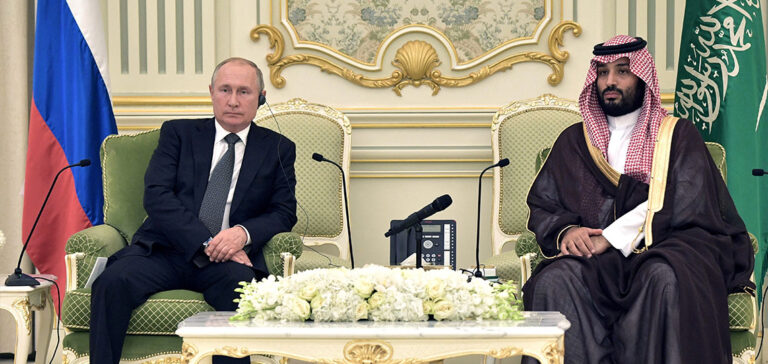Against a complex geopolitical backdrop, Vladimir Putin undertakes a rare visit to the Middle East on December 6, aimed at strengthening Russia’s OPEC+ alliance with Saudi Arabia and the United Arab Emirates. This move comes at a time when US sanctions are weighing heavily and regional security concerns are intensifying. The tour, starting in Abu Dhabi, coincides with the UN climate talks in Dubai, where the role of oil producers in the environmental debate is coming under increasing scrutiny.
Economic and political issues
Putin’s visit comes on the heels of OPEC+’s announcement of a production cut aimed at boosting oil prices, a strategy that is struggling to produce the desired effects. Discussions will focus on trade, economic and investment topics, as well as regional and international issues. Russia, as co-chair of the OPEC+ alliance with Saudi Arabia, is seeking to maintain and strengthen its influence in the global oil market, particularly in the face of cuts in its exports to Europe.
Geopolitical and economic implications
Putin’s tour illustrates the need to revitalize OPEC+ following internal tensions and stormy meetings. OPEC+ production reduction commitments remain a subject of debate, particularly with regard to Russia’s strategy, which focuses on limiting exports rather than direct production cuts. Russia, with its economic stakes linked to the war in Ukraine and its internal interests, plays a crucial role in the OPEC+ agreement.
Putin’s visit to the Middle East highlights the growing geopolitical ties between Russia and the Middle Eastern powers, centered around oil. It also underlines the importance of OPEC+ for Russia in maintaining its oil revenues and navigating Western sanctions. This tour reaffirms Russia’s position as a key player in global energy dynamics.





















